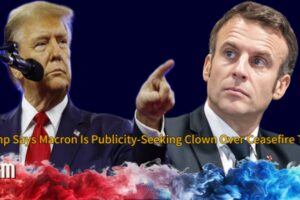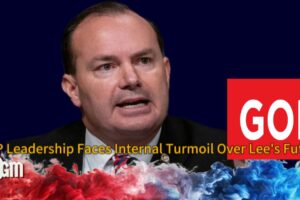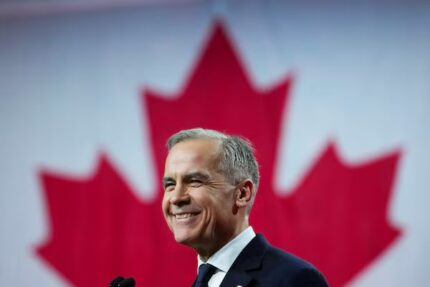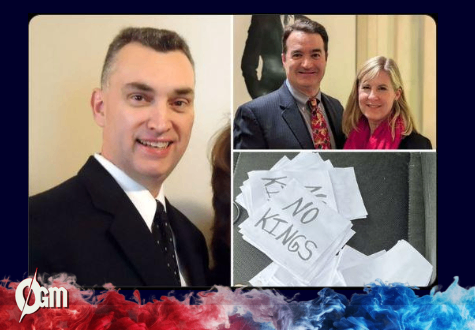In a surprising turn of events, Canada’s Liberal Party has secured victory in Monday’s federal election, with the Canadian Broadcasting Corporation projecting more seats for the Liberal party than their Conservative rivals. The win marks a dramatic comeback for the Canada Liberals party, who had been trailing in the polls for months following former Prime Minister Justin Trudeau’s resignation in March.
Newly elected Prime Minister Mark Carney now steps into the national spotlight at a time of heightened political tension and uncertainty, not only within Canada but across its southern border. While it remains unclear whether the Liberals Party will secure an outright majority in Parliament, the projection reflects a clear voter mandate to continue the party’s leadership amid domestic and international challenges.
Canadians were ultimately faced with a stark choice between Carney’s call for diplomatic resilience and economic diversification, and Conservative leader Pierre Poilievre’s populist promises to reform domestic policy. The election’s surprising result underscored the Canadian public’s desire for a steady hand in the face of what many viewed as an external political crisis.
Trump’s Interference Alters Election Landscape, shift momentum towards liberals party
The campaign narrative took a dramatic shift after U.S. President Donald Trump injected himself into Canadian politics with incendiary threats to annex Canada and a sweeping imposition of tariffs that rattled the Canadian economy. Trump’s comments — including an extraordinary Truth Social post advocating for Canada to become the “51st State” — became a defining issue of the campaign.
“Good luck to the Great people of Canada,” Trump wrote, urging voters to choose a leader who could align with his vision — though he stopped short of naming any specific candidate. The post prompted swift backlash across Canadian political lines, including a forceful response from Conservative leader Poilievre, who condemned the idea and reaffirmed Canadian sovereignty.
“President Trump, stay out of our election,” Poilievre posted in French on social media. “Canada will always be proud, sovereign and independent and we will NEVER be the 51st State.” For many voters, the intrusion underscored the need for leadership capable of asserting national independence in foreign policy, giving liberals party campaign fresh urgency and credibility.
Voters Prioritize Sovereignty and Economic Survival
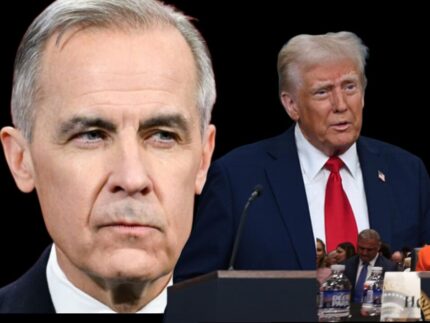
Across the nation, voters cited concerns about sovereignty, affordability, and Trump’s economic policies as key issues influencing their decisions. In Milton City, Ontario, a record number of Canadians turned out at polling stations, part of an estimated 7.3 million early voters — a 25% increase over the 2021 election.
“We thought about tariffs, our economy, and Trump’s influence,” said one couple who voted Liberal party. “The tariffs affected the market; it affected prices of all goods, food, anything.” Another voter, Peter, emphasized the sovereignty issue, stating, “A united Canada with a national approach is the only way to deal with the U.S. president.”
John Ivsky, a self-employed businessman, noted that Canada’s dependence on the U.S. had become too risky. “We need partners all over the world, so we don’t suffer from one political change in one country,” he said, though he ultimately expressed support for conservative values. The deep division between ideology and practical concerns was a hallmark of this election, illustrating a Canadian electorate seeking balance between tradition and global adaptability.
Carney’s Call for Unity and Strength Against U.S. Pressure
Throughout the campaign, Prime Minister-elect Mark Carney emphasized the urgency of building a government strong enough to counter Trump’s aggressive stance. “President Trump has some obsessive ideas, and that is one,” Carney said of the annexation threat. “It’s not a joke. It’s his very strong desire to make this happen.”
Carney’s strategy focused on uniting Canadians around national strength, diversified trade partnerships, and reinforcing Canada’s independence on the world stage. His message resonated particularly with undecided voters wary of populist politics and geopolitical uncertainty.
Whether or not Carney achieves a parliamentary majority, his success signals broad public approval for a steady, principled approach to both foreign interference and internal challenges. His mandate, however large or narrow, will face immediate tests as Canada navigates the repercussions of Trump-era policy and a shifting international order.
Poilievre’s Populism Falters in the Face of Trump Comparisons
Conservative leader Pierre Poilievre, once the presumed frontrunner, found his campaign floundering in the final stretch as comparisons to Donald Trump intensified. While Poilievre tried to maintain a distinctly Canadian voice, his alignment with certain populist themes — including rolling back environmental regulations and bringing back plastic bags and straws — may have cost him critical moderate votes.
“A couple of things that unfortunately, Pierre has come out with… might sound silly, but the fact he wants to bring back plastic bags and straws — I didn’t like that idea,” said one voter who chose to remain anonymous. The Liberal party campaign effectively used these positions to paint Poilievre as ideologically closer to Trump, a comparison that became toxic in the wake of Trump’s annexation rhetoric.
Despite his strong performance in early polls, Poilievre’s failure to clearly differentiate his platform from Trump’s worldview may have alienated voters looking for a distinct Canadian identity in leadership. While he remains a powerful figure in Parliament, this election marks a significant setback in his aspirations for national leadership.




